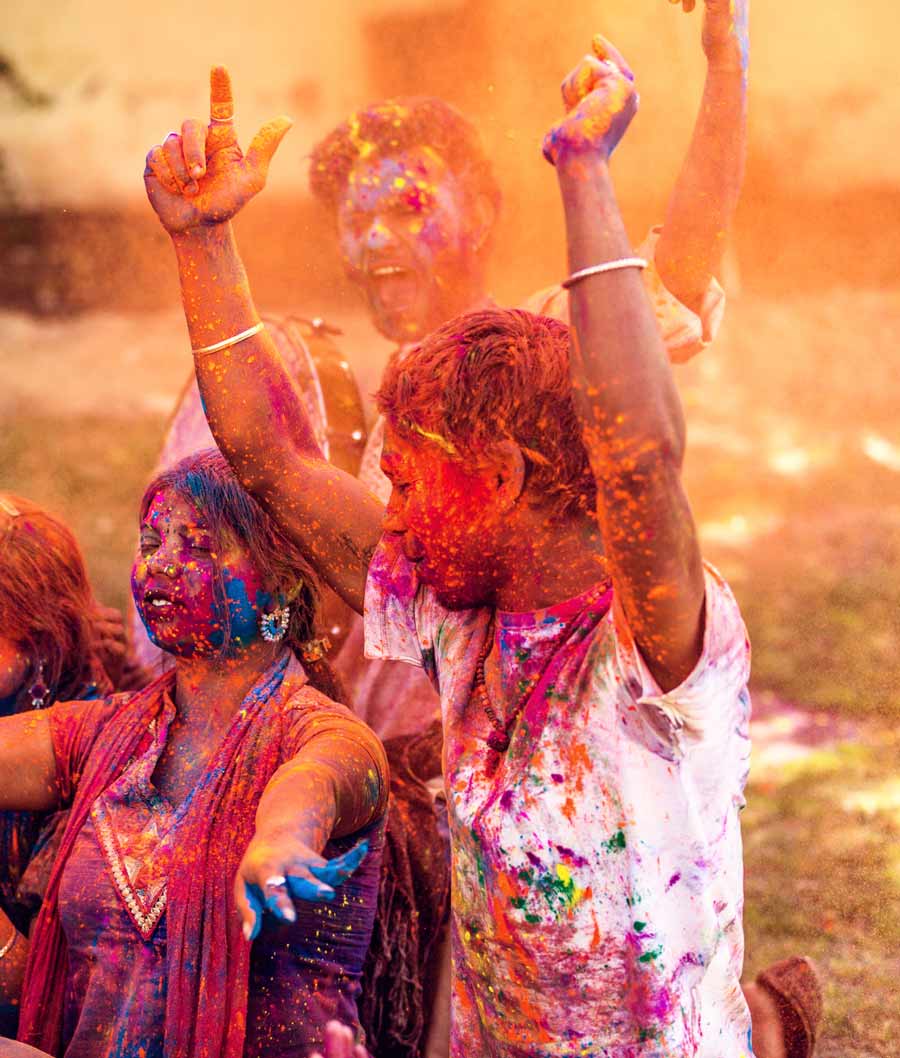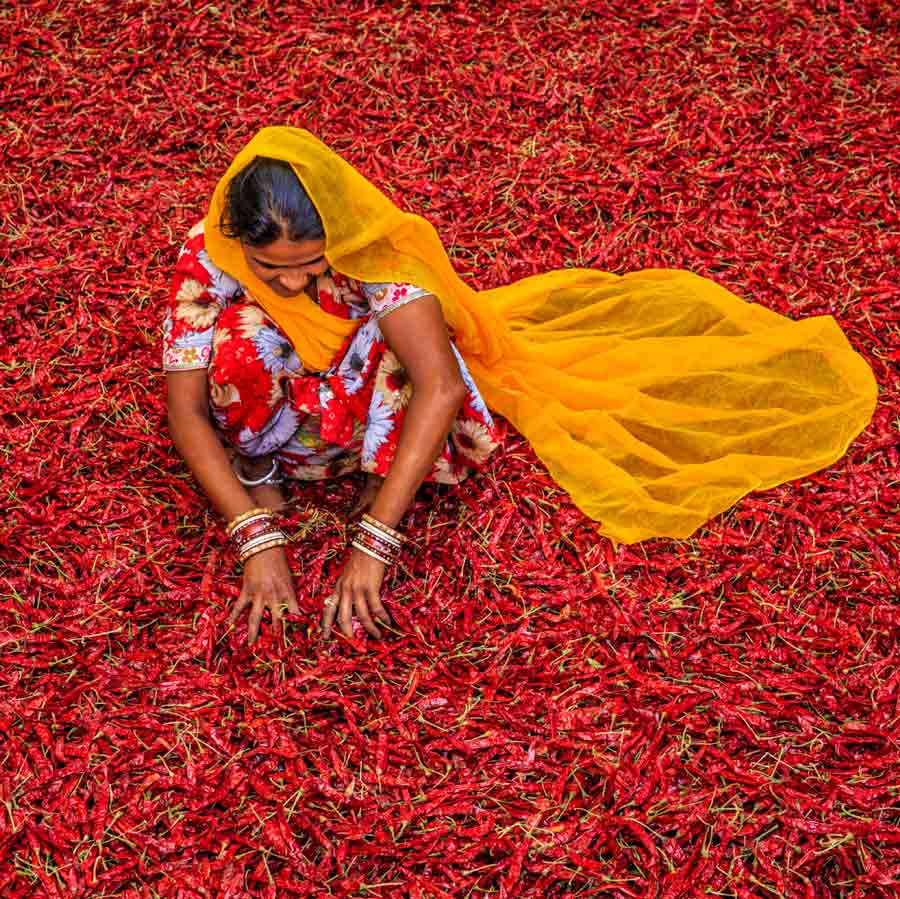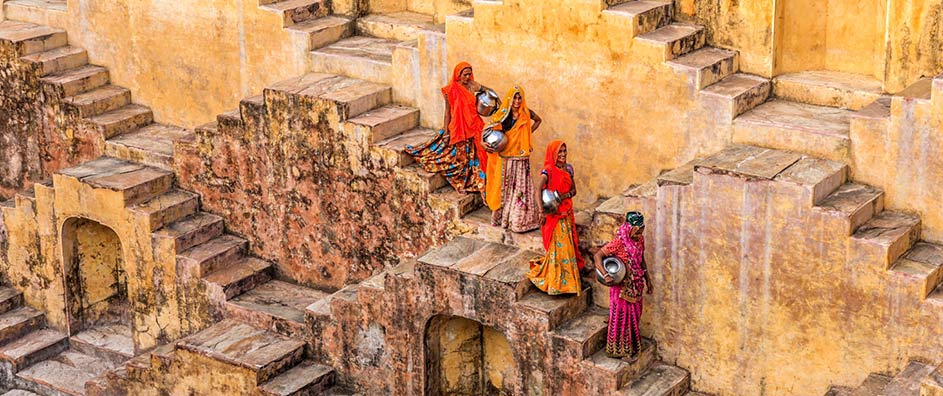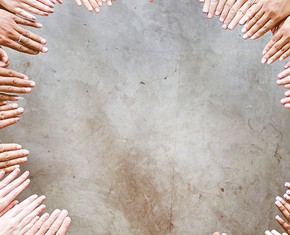The views expressed in our content reflect individual perspectives and do not represent the authoritative views of the Baha'i Faith.
“It’s an honor to meet you,” I say and Tahera smiles.
“Holi-day,” she says, pointing at the red in my hair. “Your name is the Hindu festival for spring. Holi. Do you know it?”
 “I do,” I say, remembering all the Indians at the Delhi airport and on the streets the day we landed, their hair and faces and clothes still coated with bright red, green and yellow powders. “It’s over now, though, isn’t it?”
“I do,” I say, remembering all the Indians at the Delhi airport and on the streets the day we landed, their hair and faces and clothes still coated with bright red, green and yellow powders. “It’s over now, though, isn’t it?”
“Not for you,” Tahera says, looking at my red hair, and we both laugh. “The girls will think you are still celebrating.” As we load our suitcases into the back of the Barli Development Institute’s ancient 4 X 4, a water buffalo watches us placidly from the middle of the road, chewing his enormous cud while an army of birds sing so loudly overhead we all have to stop and listen.
“Those are nightingales!” my son Walter says. “Hundreds of nightingales are singing out there!”
“Yes,” I say, while I slather his arms and face with bug repellent because he’s probably right. My son is a walking version of the Audubon Society. I listen and nod while he continues to name other nocturnal birds—warblers, thrushes, nightjars, but really, I have no idea what’s singing out there. It is just another of India’s many mysteries.
I remember learning from a recent documentary that every human being on earth who is non-African can trace their DNA back to a group of people currently living in villages on the southern tip of India. Ancient and unchanged for thousands of years, this region is home to some of the oldest holy sites in the world and the place of origin for the mysterious Vedic prayers that have been passed down orally by the Brahmin monks for hundreds of generations, prayers that baffled scientists for decades, because they follow no alphabet or human speech patterns and, in fact, pre-date the history of language itself, following soundscapes that exist nowhere else in the world. Only recently has an incredible discovery been made about these ancient prayers—that they imitate something else altogether: the songs of native birds. India’s universal connection to the divine that all of humanity shares through time immemorial reminds me why we’ve come:
The education and training of children is among the most meritorious acts of humankind and draweth down the grace and favour of the All-Merciful, for education is the indispensable foundation of all human excellence and alloweth man to work his way to the heights of abiding glory…
If, in this momentous task, a mighty effort be exerted, the world of humanity will shine out with other adornings, and shed the fairest light. Then will this darksome place grow luminous, and this abode of earth turn into Heaven. The very demons will change to angels then, and wolves to shepherds of the flock, and the wild-dog pack to gazelles that pasture on the plains of oneness, and ravening beasts to peaceful herds, and birds of prey, with talons sharp as knives, to songsters warbling their sweet native notes. – Abdu’l-Baha, Selections from the Writings of Abdu’l-Baha, p. 129.
 Because the Baha’i-inspired Barli Institute (www.barli.org) serves women from an agrarian background, I am shocked as we drive into the lengthening shadows of a future mega-city. Skeletons of half-constructed skyscrapers and overpasses line the well-paved highway, looming over rickety market stalls and abandoned donkey carts filled to overflowing with used electronic parts and discarded plastic.
Because the Baha’i-inspired Barli Institute (www.barli.org) serves women from an agrarian background, I am shocked as we drive into the lengthening shadows of a future mega-city. Skeletons of half-constructed skyscrapers and overpasses line the well-paved highway, looming over rickety market stalls and abandoned donkey carts filled to overflowing with used electronic parts and discarded plastic.
In the beginning, the contrast between the city and the institute was not this stark, Tahera explains, but with the flood of Indore’s recent economic development, the city has encroached on Barli’s six acres with all of the attendant security issues. Theft and endangerment have created the need for razor wire and an imposing entrance gate, which happens to be watched over tonight by an elderly man in a purple kurta with a hip revolver. He waves us through and bows with hands pressed over his heart. “Namaste.”
Though blanketed in darkness, I can already sense that Barli is an oasis. I can see the shapes of brightly painted murals on the walls, and the shadows of lush gardens line an immaculate, central courtyard. The breezes that blow through the open window of our Jeep, though oven-hot, are thick with the scent of jasmine and dried spices.
“It definitely smells like India in this car,” Walter says, and everybody cracks up.
Next: If Women Received the Same Education as Men
















Comments
Sign in or create an account
Continue with Googleor